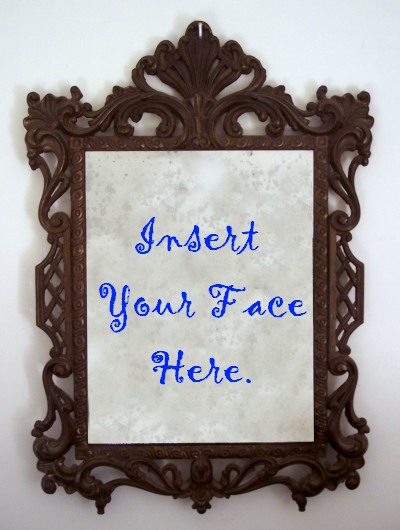After staying up into the wee hours of the night re-reading Harry Potter and the Deathly Hallows, I was a little groggy this morning. So? Down, down, down I went, down the road of hyper-caffeinated.
And now I’m flying. WHOO-HOOO! The end result being these magnificently manic musings that shall now assault your senses for Monday’s post. While listening to Muse. You’ve been warned…
We’re in the process of moving website servers, so it looks like all the traffic-related issues are going to disappear shortly. I’m pretty excited about that, because it’s been a pain dealing with load times. I’m going to be writing a new monthly column and plan on celebrating that with an appropriate theme week. Plus, we’ve got a great promotion coming up in July for FlamesRising.com and I suspect our traffic will spike.
When I started going back to conventions this year, I got the chance to sit down and talk shop with people I’ve gotten to know. I had a really good conversation with Monte Cook and Matt Forbeck over dinner, and it’s still sticking with me. One of the things Matt pointed out was that I’m probably hypersensitive to rampant self-promoters because of my background in online marketing.
Yeah, this is true. However, I think there’s something to be said for the brave souls who are trying to navigate through the upheaval in the industry. It does take a lot of gumption/cajones/audacity to put yourself out there and say “buy my book.” (Or books, as the case may be.) I’m not comfortable with super-aggressive tactics because that’s not my personality. When I walk into a store, for example, I hate being hounded by salespeople. I want the time to browse and decide for myself what I need/want to get.
My style of sales is to build relationships with people. I want to get to know my readers, because I feel they’re my clients. I’m not going to make every reader happy, but hearing from them is so, so important because books are the end result of a symbiotic relationship between writers and readers. Without readers, I wouldn’t exist.
Sales and marketing techniques are definitely author’s choice, because different things work for different people. It’s the same thing like developing a writing career. Some authors are happy publishing one book; others are in it for the long haul.
The biggest trick, I feel, is finding that balance of what you’re happy with. The more I learn about my work as an author, the more I learn about myself. I think that’s pretty tricky for most authors to figure out, but for me? I didn’t “choose” to be a writer. This vocation chose me. (Or more like, demanded that I do this or else.)
Like many authors, a lot of things got in the way of that vocation. Job. Life. Etc. No, there’s never supposed to be an excuse, but no matter what I’m doing — I always come back to it. I can’t quit my word addiction, because when/if I do, I no longer feel whole.
Right now, I don’t feel whole persay, because my writing has been touch-and-go due to a bout of Eeyore-itis. But now? I’m energized and ready to rock my keyboard. Ready. To. ROCK.
Of course, it helps that I know exactly what I want to write. 🙂 BOO-YAH!

 What does that mean? Face yourself. Shutting out social media means turning the mute button on two types of voices. First, you turn off other people’s voices that sing/yell/whisper across your screen. By doing so, though, you are automatically shutting off a second voice. YOURS. The one you use to interact with people on these tools. Which is not the same as your author’s voice, but a separate one. (And before you ask, I view blogging to be yet another voice.)
What does that mean? Face yourself. Shutting out social media means turning the mute button on two types of voices. First, you turn off other people’s voices that sing/yell/whisper across your screen. By doing so, though, you are automatically shutting off a second voice. YOURS. The one you use to interact with people on these tools. Which is not the same as your author’s voice, but a separate one. (And before you ask, I view blogging to be yet another voice.)